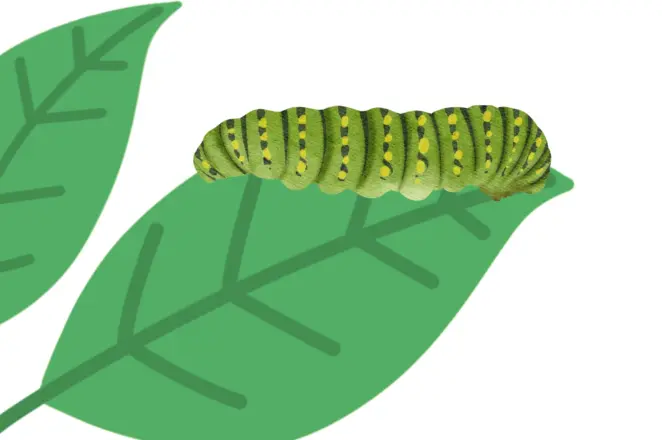Attracting Wildlife to Your Garden
Having a thriving, wildlife friendly garden not only promotes biodiversity in your garden but can also have several benefits for both your lawn and your plants like natural pest control and improved soil health.
The key to attracting beneficial wildlife is simple - you just need to provide a hospitable environment that meets their basic needs: food, water and shelter.
Additionally, planting a wide range of native plants in your garden means that they will thrive in the local climate and attract native animals. Choosing a range of plant varieties will attract lots of different critters with different benefits for your garden.
Caterpillars

- Caterpillars are often categorised as garden pests; however, people often forget that they eventually transform into one of our most important pollinators - butterflies. They are also a good food source for birds, shrews and spiders.
- Caterpillars enjoy plants that they can both eat and lay their eggs on, like Milkweed & Clover. They also enjoy Dill, Parsley and Thyme if you want to add some herbs to your garden: a win for both your kitchen and the caterpillars!
- Avoid using chemical pesticides on the plants you don’t want them to munch on. Instead, try an eco-friendly alternative like a natural repellant.spray. Caterpillars hate the smell of vinegar, lavender, garlic or chilli, so if mixed with water and sprayed on the plants you don’t want them eating, the scents will naturally deter them.
Bees
- Bees are some of the most well-known pollinators and help the reproduction of many flowering plants, fruits and vegetables.
- To help bees find and extract nectar efficiently, you should plant flowers in clusters or large patches rather than scattered throughout the garden to allow them to source the pollen all in one place.
- They will also need a water source for hydration, especially during summer. You can set up a shallow dish filled with water and rocks to provide a natural, safe drinking spot for bees.
- There are a number of different plants that attract bees, you should aim for brightly coloured, strong smelling plants to draw them in. Lavender, Sunflowers and Orange Hawkweed are all beneficial for attracting bees due to their vibrant colours, strong nectar production and stable structure for the insects to land on.

Ladybirds

- Ladybirds are low maintenance beneficial bugs to have in your garden. They feed on aphids, insects, mites & other garden pests, making them a convenient and sustainable form of pest control.
- By preying on pest insects, ladybirds protect plants from damage caused by feeding and infestation, allowing for healthier growth. They also reduce the need for chemical pesticides and require minimal intervention once they’re established in your garden.
- You should make an environment of dense, cool shrubbery for ladybirds to establish as their habitat. You should also avoid using any chemicals on the garden which can deter them, instead, opt for eco-friendly alternatives like DIY weed killers.
By making a few small, wildlife friendly changes, anyone can transform their garden into a thriving ecosystem for both yourself & the local wildlife to enjoy.

